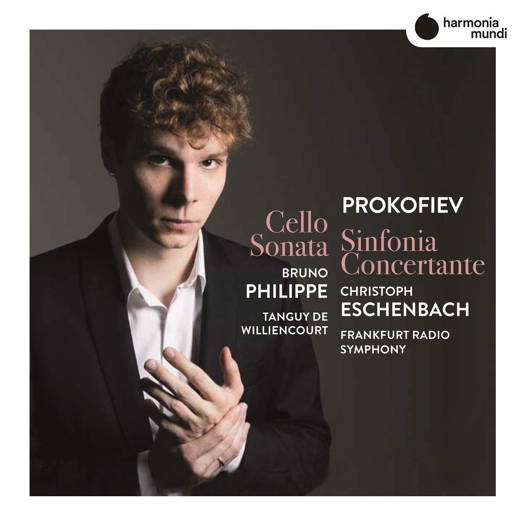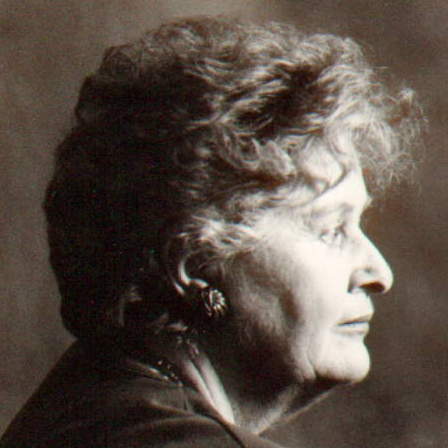 DISCUSSION: What is a work? John Dante Prevedini leads a discussion about The performing artist as co-creator, including contributions from Halida Dinova, Yekaterina Lebedeva, Béla Hartmann, David Arditti and Stephen Francis Vasta.
DISCUSSION: What is a work? John Dante Prevedini leads a discussion about The performing artist as co-creator, including contributions from Halida Dinova, Yekaterina Lebedeva, Béla Hartmann, David Arditti and Stephen Francis Vasta.

Prevailing Classicism
Music by Prokofiev for the cello,
reviewed by GERALD FENECH
'Conductor, soloists and orchestra get under Prokofiev's skin with renditions full of fire and energy, spiced with a Slavonic spirit that complements the texture of the music - mesmerising virtuosity matched only by the genius of the composer.'
In the late 1940s, there arrived on the musical scene the young and prodigiously gifted cellist Mstislav Rostropovich (1927-2007). Winner of several competitions and accolades, this quite remarkable soloist sparked a much needed interest in the cello among Soviet composers. The first to grab the opportunity was Sergei Prokofiev (1891-1953), one of Russia's greatest composers of the twentieth century, and with whom Rostropovich had studied. No surprise then, when in 1949 his Cello Sonata in C, Op 119, appeared on the scene. The premiere was initially during a private occasion on 18 December 1949, but eventually it reached the public at a Moscow concert on 1 March 1950. Obviously, the performers were the dedicatee and a legend of the piano and friend of Rostropovich, Sviatoslav Richter.
Following on the lines of other similar Soviet sonatas by Myaskovsky and Shostakovich, Prokofiev's piece belongs to what might be called a period of prevailing classicism in Soviet music.
Listen — Prokofiev: Andante grave (Cello Sonata in C)
(track 4, 4:03-4:43) © 2019 harmonia mundi musique sas :
Written in the composer's favourite key of C major, this Sonata contains some really fine music and is in three movements, whose dynamic markings in each case change from soft to loud.
Listen — Prokofiev: Allegro, ma non troppo (Cello Sonata in C)
(track 6, 4:33-5:11) © 2019 harmonia mundi musique sas :
Although this Sonata came late in Prokofiev's life, the composer's interest in the instrument started much earlier. Between 1933 and 1938, the period covering his last years in the West and his final return to the USSR, he had composed a Cello Concerto, Op 58, but its premiere on 26 November 1938 in Moscow was a letdown. Revised two years later, the work did not seem to bring with it any telling improvements. Finally in 1951, a thorough revision of the work resulted in this new Concerto, Op 125, which, sadly, was another disappointment. This failed attempt to get the concerto going, which was premiered one year before Prokofiev's death on 18 February 1952, did not deter the composer from continuing to make improvements, notably in the orchestral writing, which is highly demanding.
Listen — Prokofiev: Andante (Sinfonia Concertante)
(track 1, 0:01-1:00) © 2019 harmonia mundi musique sas :
Written in the usual three movements, this so called Symphony-Concerto contains many dense passages that alternate with more lyrical ones, but the complex second movement, together with the soloist's fiendish part, are, maybe, the main reasons for its infrequent performances.
Listen — Prokofiev: Allegretto (Sinfonia Concertante)
(track 3, 9:42-10:42) © 2019 harmonia mundi musique sas :
Conductor, soloists and orchestra get under Prokofiev's skin with renditions full of fire and energy, spiced with a Slavonic spirit that complements the texture of the music - mesmerising virtuosity matched only by the genius of the composer. Insightful notes and pristine sound quality complete an issue to be reckoned with.
Copyright © 29 April 2020
Gerald Fenech,
Gzira, Malta

CD INFORMATION: PROKOFIEV: SINFONIA CONCERTANTE; CELLO SONATA
FURTHER INFORMATION: SERGEI PROKOFIEV
FURTHER INFORMATION: HARMONIA MUNDI



